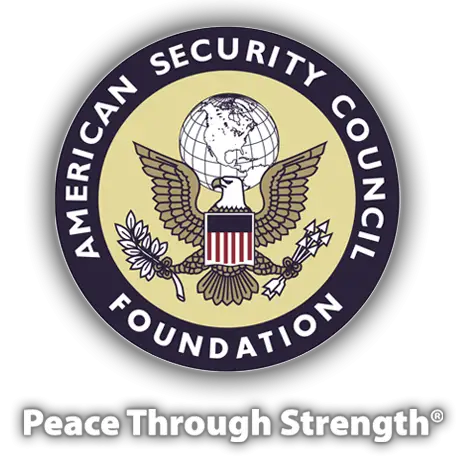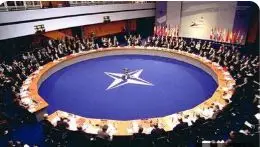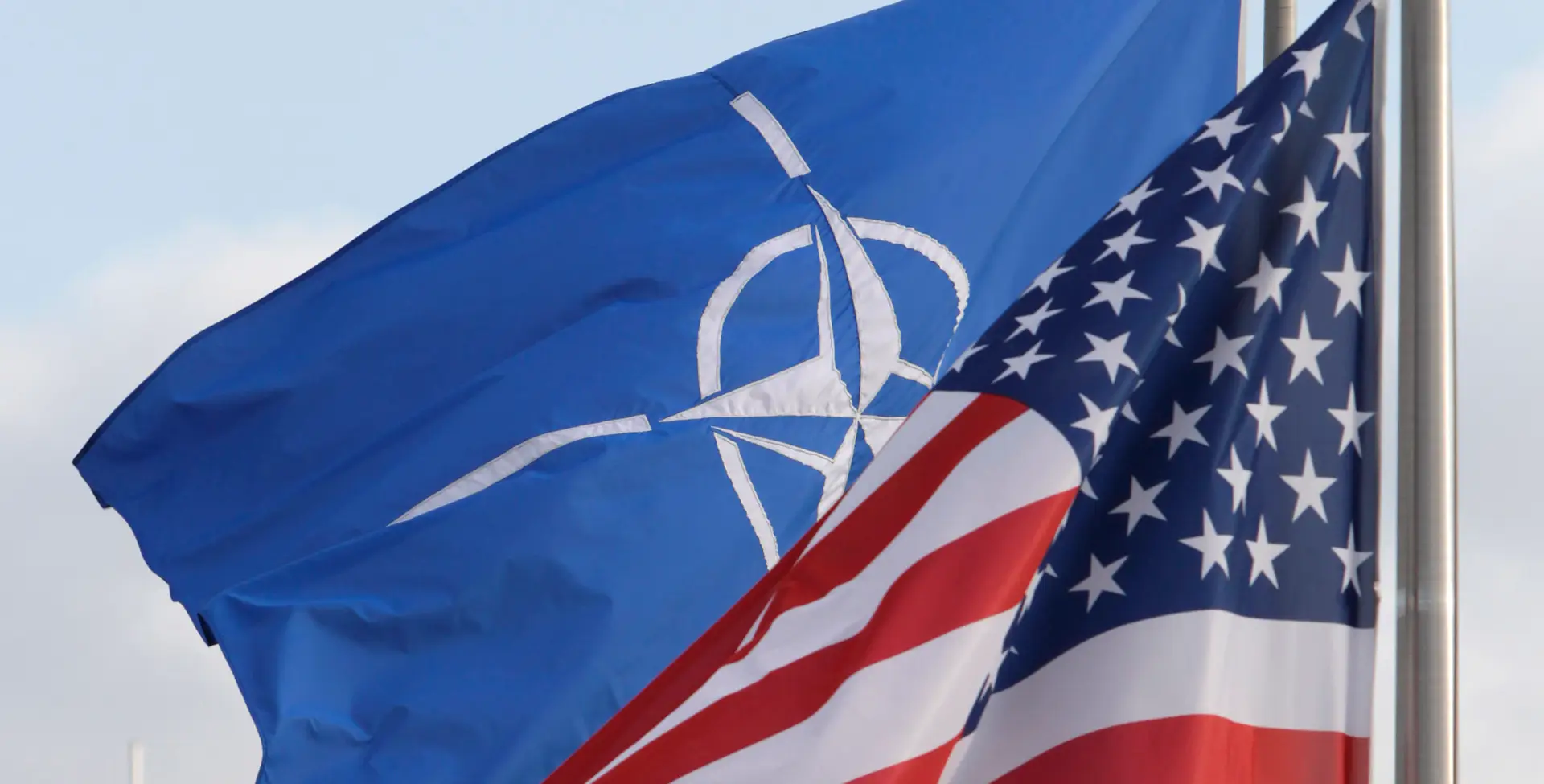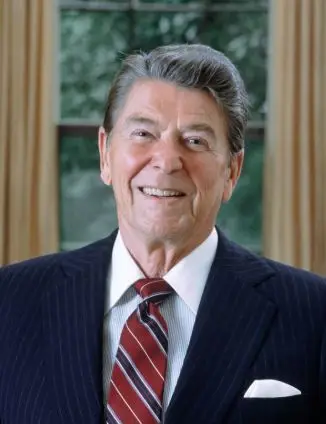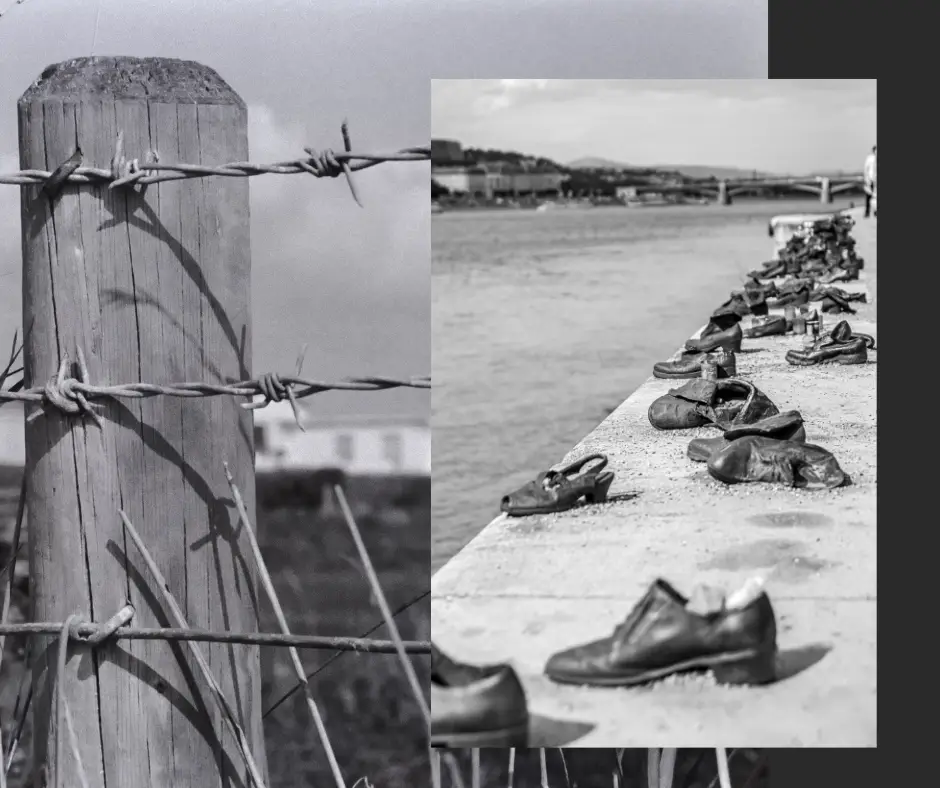
If you liked this article, please share it with your friends and family. You can also help the American Security Council Foundation shape American policy.
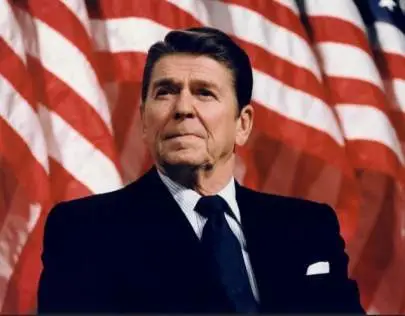
Written by Alan W. Dowd, ASCF Senior Fellow
The previous issue explored NATO’s origins, history and recent reawakening. This issue highlights President Ronald Reagan’s commitment to the farsighted defense of the greatest alliance of free nations that mankind has ever assembled.
Strategy of Strength
Those of us who look to Reagan for guidance and claim his mantle should remember that Reagan was an unwavering NATO advocate both during and after Cold War I.
Reagan never questioned NATO’s relevance or role, never dismissed NATO as obsolete, never publicly browbeat NATO laggards, never threatened to withdraw from NATO, or raised doubts about America’s commitment to NATO.
Instead of viewing the alliance as a drain or a liability, Reagan recognized NATO as a precious resource to be nurtured and a key element of America’s security.
For instance, Reagan emphasized the parallels between his peace-through-strength doctrine and what he called “NATO’s strategy for peace,” which was premised on the idea that NATO must “be strong enough, be determined enough…to stop aggression before it happens.”
Reagan reassured America’s NATO allies by echoing the words of Article V of the North Atlantic Treaty: “If our fellow democracies are not secure,” Reagan said in an address to the allies, “we cannot be secure. If you are threatened, we’re threatened. If you’re not at peace, we cannot be at peace. An attack on you is an attack on us. This is not simply a matter of treaty language, important as treaty language is. It is an enduring reality.”
Reagan championed NATO as “a living commitment of the nations of the West to the defense of democracy and individual liberty” and “a bond which has served us so well over the years and which will continue to be essential to our welfare in the future.”
Importantly, Reagan didn’t think NATO’s mission was over when the Berlin Wall fell and the Soviet Empire collapsed.
In fact, as post-Soviet Europe began to hemorrhage, Reagan reminded a new generation of leaders that “There is an antidote to chaos…Its name is NATO. Forty-five years after it was founded as a bulwark against Soviet expansionism, NATO must again be made relevant to European peacekeeping.”
Even as Moscow began walking the path of reform and liberalization, Reagan cautioned, “We cannot afford to forget that we are dealing with a political system, a political culture and a political history going back many decades, even centuries…We cannot afford to mortgage our security to the assessed motives of particular individuals or to the novel approaches of new leadership, even if we wish them well. We must stick with the strategy of strength.”
In short, Reagan shrewdly saw NATO as a hedge against uncertainty—especially against a Russia that might wander away from the path of reform. And here we are: Putin’s Russia has propped up hostile regimes in this hemisphere and the Middle East; warned of preemptive use of nuclear weapons to somehow de-escalate a conflict; armed Taliban forces fighting against a U.S.-led, U.N.-authorized peacekeeping force. Putin’s Russia violated nuclear treaties, conventional-weapons treaties and an agreement in which it promised to “respect the independence…sovereignty and existing borders of Ukraine”; attacked and occupied parts of Georgia and Ukraine; sieged the whole of Ukraine. Putin shut off natural gas bound for Ukraine, Bulgaria, Hungary and Greece; threatened NATO allies Sweden, Finland, Poland and the Baltics; simulated nuclear strikes targeting Poland; waged cyberwar against Estonia; deployed nuclear weapons into Belarus; massively increased military spending; and vowed to rebuild the Russian Empire.
Blame
Reagan embraced NATO’s open-door policy, welcoming Spain into the alliance during his presidency. He encouraged and endorsed NATO’s continued growth, even after the fall of the Berlin Wall: “We must extend NATO protections and the NATO framework to those who desire to be part of our alliance,” he declared. “Room must be made in NATO for the democracies of Central and Eastern Europe.”
There can be little doubt that Reagan would have included Ukraine—a free, democratic country that sits in the very center of Europe—on his NATO invite list. Russia’s war on Ukraine (and Georgia) is evidence of the deterrent power of the NATO shield. After all, while Putin has attacked and occupied non-NATO members Ukraine, Georgia and Moldova, he has not militarily attacked any NATO member. The plight of Ukraine, Georgia and Moldova reminds us that helping free nations harden their territory against invasion (as NATO has done since 1949) is wiser and far less costly than scrambling to help them try to claw it back. As Reagan declared at Normandy, “It is better to be here ready to protect the peace than to take blind shelter across the sea, rushing to respond only after freedom is lost.”
Reagan would explain to those who blame Russia’s aggression on NATO’s growth that they have it precisely backward. Russia didn’t launch wars of aggression against Ukraine in 2014 or Georgia in 2008 because they wanted to join NATO. Rather, Ukraine and Georgia—like Poland, Hungary and the Czech Republic in 1999, Estonia, Latvia and Lithuania in 2004, and Sweden and Finland in 2023—wanted to join NATO because of Russian aggression.
Reagan also would chide those in the West who appeased Moscow and forgot the lessons of Munich. It’s important to emphasize that up until Putin’s lunge at Kiev in early 2022, Washington in specific and NATO in general placated Putin and overlooked Russian aggression.
In 2009, after Russia lopped off part of Georgia, Washington canceled missile-defense deployments in Eastern Europe in hopes of “resetting” relations with Moscow. In 2011, Washington deactivated the Navy’s North Atlantic-focused 2nd Fleet. In 2012, Washington deactivated the Army’s Germany-based V Corps. In 2013, Britain closed its garrison in Germany, and Washington withdrew all of America’s heavy armor from Europe—marking the first time since 1944 that Europe was left unprotected by American tanks. And after Putin’s initial invasion of Ukraine in 2014, Washington responded by sending Kyiv “nonlethal aid.” Then-Ukrainian President Petro Poroshenko’s stinging response: “One cannot win a war with blankets.”
Front Lines
As NATO tore down the walls that once had divided Europe, Reagan’s successor, President George H.W. Bush, aptly compared the alliance to “an insurance policy…against the kinds of conflagrations that we’ve seen in the past.”
For the United States, NATO serves as a hedge against disaster and diminishes the likelihood of the very worst of the worst-case scenarios: another European conflict triggering another global war. For NATO’s other members, NATO is a security guarantee backed by the United States. Without that guarantee, there’s no security, as history has a way of reminding those on the outside looking in, from Cold War Hungary to post-Cold War Ukraine.
Like all insurance policies, there are costs associated with the NATO alliance. U.S. defense expenditures earmarked for Europe amount to more than $36 billion per year. Americans tend to forget what we get in exchange for that insurance premium: a Europe not at war with itself, a Europe reinforced against invasion and free from any hostile force, access to bases that enable the U.S. to project power and defend the national interest, and the vast trade and economic benefits that flow from these realities.
Moreover, too many Americans forget the costs of deterring war in Europe are far lower than the costs of waging war in Europe. A $36-billion investment in transatlantic security equals less than 0.2 percent of U.S. GDP. During World War I, by comparison, the U.S. spent an average of 16.1 percent of GDP on defense—and sacrificed 116,516 lives. During World War II, the U.S. spent an average of 27 percent of GDP on defense—and sacrificed 405,399 lives.
Yet in the long shadow of that sacrifice, in the 75 years of great-power peace made possible by NATO’s commitment to deterrence, in the terror and barbarity endured by those outside the NATO umbrella, “There are still some who question the alliance,” as Reagan sighed in disbelief.
“We hear,” he continued, “that somehow the United States is being mistreated by our friends and allies. The argument they use is that our allies are not sharing the burden of their own defense equitably…We must always remember the very real burden our allies bear that we never will. We must remember our allies perform a role that geography has forced upon them. They are literally on the front lines…Their soldiers, their children, their homes, and their civilization itself hang in the balance every day. We cannot, we must not, forget this.”
We must not forget this, and we must forget the value of NATO.
